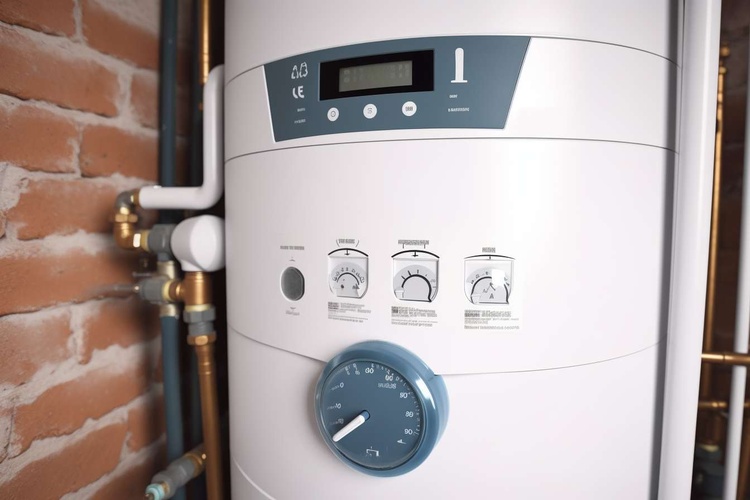Boiler Replacement Grants May Help Brits Get New Boilers
Navigating the cost of a new boiler can be challenging for many UK households, especially during economic uncertainty. Fortunately, various government-backed schemes offer financial assistance for boiler replacements, helping residents upgrade to more efficient systems while reducing their environmental impact and energy bills. Understanding these available grants could make a significant difference for those struggling with outdated or inefficient heating systems.

With energy costs continuing to rise across the UK, many homeowners and tenants are finding themselves burdened with inefficient heating systems that consume excessive energy and produce higher bills. Boiler replacement grants have emerged as a valuable resource for British households looking to upgrade their heating systems without bearing the full financial burden. These initiatives aim to improve energy efficiency, reduce carbon emissions, and make heating more affordable for vulnerable households.
Understanding Boiler Replacement Grants in the UK
Boiler replacement grants in the UK are financial assistance programs designed to help eligible households replace old, inefficient boilers with newer, more energy-efficient models. These grants are typically funded by the government, energy companies, or local authorities as part of broader energy efficiency and carbon reduction strategies.
The primary objective of these grants is twofold: to reduce the UK’s carbon footprint by replacing carbon-intensive heating systems and to help households save money on energy bills through improved efficiency. Eligibility criteria often focus on low-income households, those receiving certain benefits, or properties with particularly inefficient heating systems.
Most grants don’t cover the entire cost of a new boiler installation but provide significant contributions that make replacements more affordable. The application processes vary between schemes, but generally require proof of eligibility and sometimes an assessment of the current heating system.
Key Boiler Replacement Schemes Available
Several schemes currently operate across the UK, each with specific eligibility criteria and benefits. Understanding which programs are accessible to you depends on your personal circumstances, location, and the type of property you occupy.
The Energy Company Obligation (ECO) scheme is one of the most widespread programs. Currently in its fourth iteration (ECO4), this government-mandated program requires larger energy suppliers to help vulnerable households improve energy efficiency. Under ECO4, eligible households can receive assistance for boiler replacements if they receive qualifying benefits or meet low-income thresholds.
Local authority grants represent another avenue for support. Many councils offer their own schemes targeted at residents in their areas, particularly focusing on those in fuel poverty or with health conditions exacerbated by cold homes. These grants vary significantly by location, so checking with your local council is essential.
For homeowners in Scotland, the Warmer Homes Scotland scheme provides funding for energy efficiency improvements, including boiler replacements, to households struggling with energy costs.
The Boiler Upgrade Scheme (BUS)
The Boiler Upgrade Scheme represents a significant shift in the UK’s approach to home heating, focusing specifically on low-carbon alternatives rather than traditional gas boiler replacements. Launched in April 2022, this scheme provides grants to encourage property owners to install low-carbon heating systems in place of existing fossil fuel systems.
Unlike previous schemes that focused on like-for-like replacements, BUS offers grants of £5,000 for air source heat pumps and biomass boilers, and £6,000 for ground source heat pumps. The scheme is available to domestic and small non-domestic properties in England and Wales, with a total budget of £450 million allocated over three years.
To qualify, properties must have a valid Energy Performance Certificate (EPC) with no outstanding recommendations for loft or cavity wall insulation. The scheme operates on a first-come, first-served basis, with applications processed through MCS-certified installers who apply for the grant on the homeowner’s behalf.
While not a direct boiler replacement grant in the traditional sense, BUS represents the government’s commitment to transitioning away from fossil fuel heating toward more sustainable alternatives.
Eligibility Requirements for Boiler Grants
Determining eligibility for boiler replacement grants requires understanding the specific criteria of each scheme. While requirements vary, several common factors typically influence eligibility across most programs.
For ECO4 grants, eligibility generally centers on receiving qualifying benefits such as Universal Credit, Pension Credit, Child Tax Credits, or Working Tax Credits. Properties with an Energy Performance Certificate (EPC) rating of D-G may receive priority, as these homes stand to benefit most from efficiency improvements.
For the Boiler Upgrade Scheme, eligibility depends less on personal circumstances and more on the property itself and the heating system being installed. The focus is on properties suitable for heat pump installation or other low-carbon alternatives.
Age can also be a determining factor, with some schemes specifically designed for pensioners or households with young children. Additionally, certain health conditions that make individuals vulnerable to cold environments may qualify households for priority assistance.
Regional variations exist across the UK, with Scotland, Wales, and Northern Ireland often operating their own distinct programs with different eligibility requirements than those in England.
Application Process and Documentation
Applying for boiler replacement grants typically involves several steps and requires specific documentation to verify eligibility. Understanding this process can help streamline your application and increase chances of approval.
Most schemes require applicants to provide proof of identity, evidence of benefits received, property ownership or tenancy agreements, and existing boiler details including age and condition. For schemes like ECO4, an initial assessment of your property’s energy efficiency may be required to establish baseline performance.
The application pathway generally begins with determining which scheme best suits your circumstances. For ECO4, applications are typically made through participating energy suppliers or their approved installers. For the Boiler Upgrade Scheme, applications must be submitted by MCS-certified installers on the homeowner’s behalf.
| Scheme | Available Funding | Eligibility Focus | Application Through |
|---|---|---|---|
| ECO4 | Variable based on circumstances | Benefit recipients, low income | Energy suppliers/installers |
| Boiler Upgrade Scheme | £5,000-£6,000 | Property suitability for low-carbon heating | MCS-certified installers |
| Warmer Homes Scotland | Full or partial funding | Scottish residents in fuel poverty | Home Energy Scotland |
| Local Authority Schemes | Varies by council | Local residents, often vulnerable | Direct with local council |
Prices, rates, or cost estimates mentioned in this article are based on the latest available information but may change over time. Independent research is advised before making financial decisions.
After submission, applications typically undergo an assessment period where the administering body reviews eligibility and determines the level of support available. This may include a home visit to assess the current heating system and confirm the property’s suitability for the proposed replacement.
Benefits Beyond Financial Savings
While the immediate financial assistance is often the primary motivation for seeking boiler replacement grants, the benefits extend far beyond the initial cost savings. Understanding these additional advantages can provide further incentive for eligible households to pursue these opportunities.
Modern boilers typically operate at efficiency rates of 90% or higher, compared to older models that might function at 60-70% efficiency. This improvement translates directly to reduced energy consumption and lower monthly bills, with savings potentially reaching hundreds of pounds annually depending on household size and usage patterns.
Environmental benefits are equally significant. Newer boilers produce fewer carbon emissions, helping households reduce their carbon footprint. For those utilizing the Boiler Upgrade Scheme to install heat pumps or biomass boilers, the environmental impact is even more substantial, contributing to the UK’s broader climate goals.
Home comfort also improves with modern heating systems. New boilers provide more reliable heating, better temperature control, and more consistent hot water supply. For households with vulnerable members, these improvements can have meaningful health impacts, particularly during cold winter months.
Finally, property value may increase with the installation of an efficient, modern heating system. As energy performance becomes an increasingly important factor for homebuyers, properties with updated heating systems tend to command higher market values and attract more interest from prospective purchasers.
Boiler replacement grants represent a valuable opportunity for British households to improve their heating systems, reduce energy costs, and contribute to environmental sustainability. By understanding the available schemes, eligibility requirements, and application processes, eligible households can access financial support that makes these improvements more affordable and accessible.




